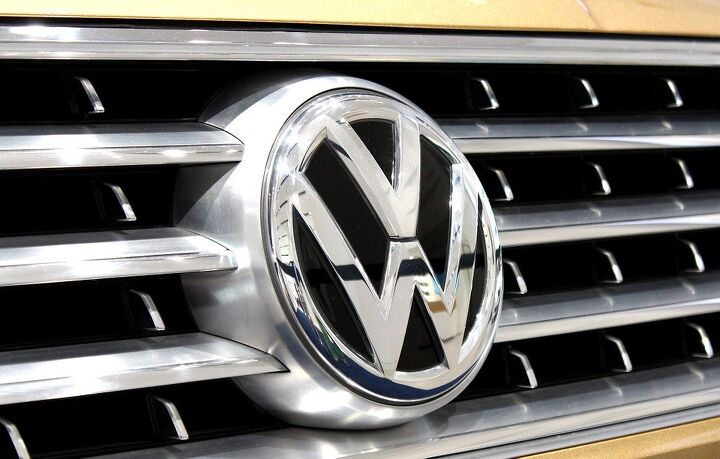Nabbed in Miami Bathroom, Volkswagen Executive Gets Seven Years for Role in Diesel Conspiracy

The judge didn’t go easy on the former Volkswagen executive. Oliver Schmidt, 48, former general manager of Volkswagen’s U.S. Environment and Engineering Office, was sentenced to seven years in prison and handed a $400,000 fine Wednesday for his role in covering up the automaker’s diesel emissions deception.
Schmidt’s punishment is the maximum allowed under the plea deal he reached in August. The executive pleaded guilty to two charges relating to the conspiracy to violate the country’s Clean Air Act with a fleet of pollution-spewing diesel cars.
“It is my opinion that you are a key conspirator in this scheme to defraud the United States,” U.S. District Judge Sean Cox of Detroit told Schmidt. “You saw this as your opportunity to shine … and climb the corporate ladder at VW.”
The sentencing wraps up a legal saga that began, unpleasantly, as Schmidt sat on a Miami toilet during a vacation stopover.
The executive was indeed rising up the ranks at the time. After his stint at the automaker’s Auburn Hills Environment and Engineering office (which handles such things as emissions compliance), Schmidt left the U.S. in 2015 for a position in his home country of Germany. There, he learned of the scope of the company’s emissions cheating.
Schmidt then conspired with a number of executives ( since indicted by the U.S.) to cover up the fact that the company’s 2.0-liter diesel cars spewed as much as 40 times the legal amount of smog-causing nitrogen oxide pollution. The vehicles in question, roughly half a million in the U.S., tricked regulators by only activating the emissions control software when the car “knew” it was undergoing testing. Reviewers heaped praise on the 2.0-liter TDI models, sold under the “clean diesel” banner, for their power and efficiency.
As Volkswagen attempted to certify its 2016 diesel vehicles in the U.S., it was partly Schmidt’s job to keep U.S. regulators from discovering the truth. The rest, of course, is history. $25 billion worth of it.
Schmidt’s sentencing comes nearly a year after his arrest. As Germany does not have an extradition treaty with the U.S., German felons or suspects are safe from arrest and prosecution, so long as they stay within the country’s borders. Earlier this year, rumors arose of VW employees being warned not to leave the country.
Schmidt, however, made a fateful mistake. He decided to take a Caribbean vacation last winter — one that included a stopover in Miami on the return flight. There, at Miami International Airport, federal agents who were tracking Schmidt’s movements lay in wait.
In a letter to Judge Cox, Schmidt described what happened next.
“Being arrested on the toilet of the airport in Miami by (eight) law enforcement officers and then being led to my wife in handcuffs was one of the most humiliating experiences of my life up until then,” he wrote. “This humiliation was surpassed by the public shaming that followed. My mugshot became the face of Dieselgate worldwide.”
No doubt the occupant of the next stall has a story to tell.
Schmidt was arraigned, then cooled his heels in a Detroit jail for the rest of the year after being denied bail. The former exec broke down in court as he described the past year.
“I made bad decisions and for that I am sorry,” Schmidt said. However, the man’s remorse didn’t sway Cox, nor U.S. Department of Justice trial attorney Benjamin Singer, who claimed Schmidt was “part of the decision making process” at Volkswagen and actively helped cover up the company’s crimes.
“Every time he chose to lie,” Singer said.
In August, former VW engineer James Liang, who had a hand in developing the illegal engines, was sentenced to 40 months in prison and handed a $200,000 fine by the same judge. Following his arrest, Liang helped authorities track down his co-conspirators.
[Sources: The Detroit News, Reuters] [Image: Volkswagen USA]

More by Steph Willems
Latest Car Reviews
Read moreLatest Product Reviews
Read moreRecent Comments
- The Oracle Geesh, Stellantis can’t even perform the upkeep on that relic of a plant. Sad.
- The Oracle I see Tesla introducing disruptive charging technology within 3 years.
- The Oracle I can see into the future and I see fisticuffs and profanity-laced tirades coming to charging locations near ya’ll.
- El scotto Will ascots be discussed at the HOA meetings? Or Purdey shotguns?
- El scotto Wait, wait will they rename the street it fronts Jermyn or New Bond Street?


































Comments
Join the conversation
And he would have gotten away with it too, if it weren't for you meddling kids.
I hope the officers let him wash his hands first.